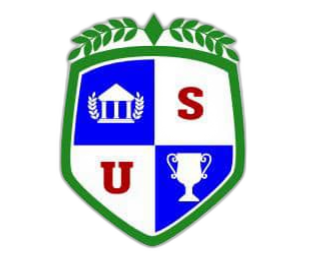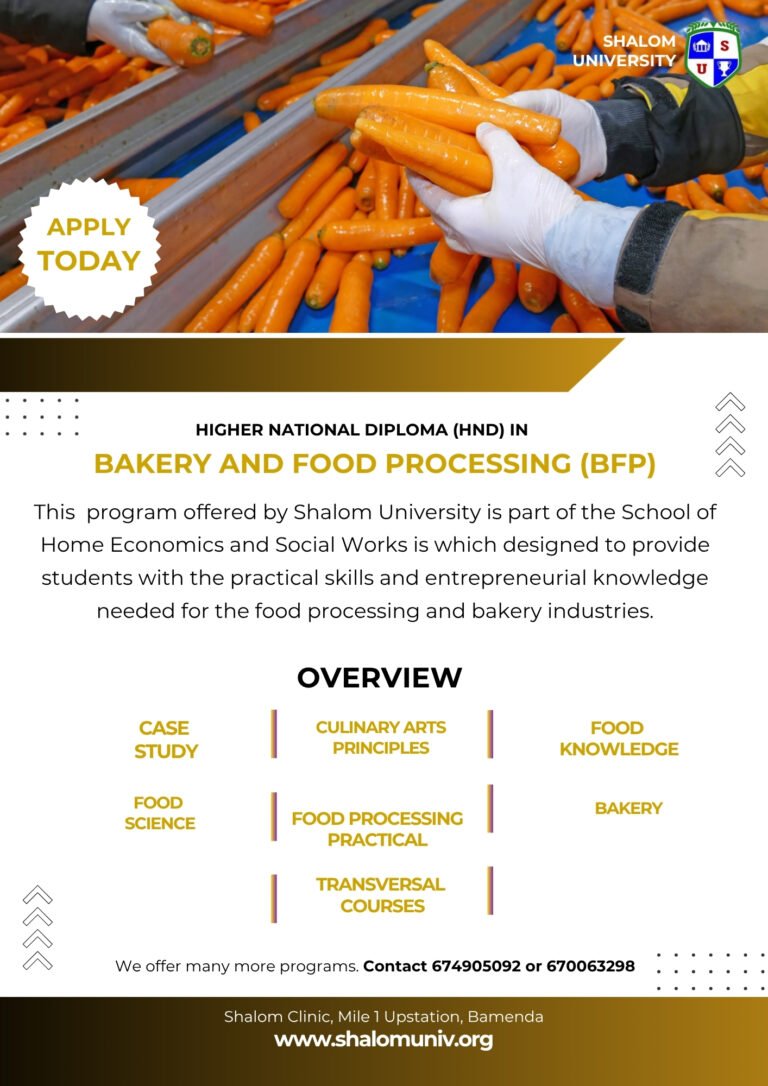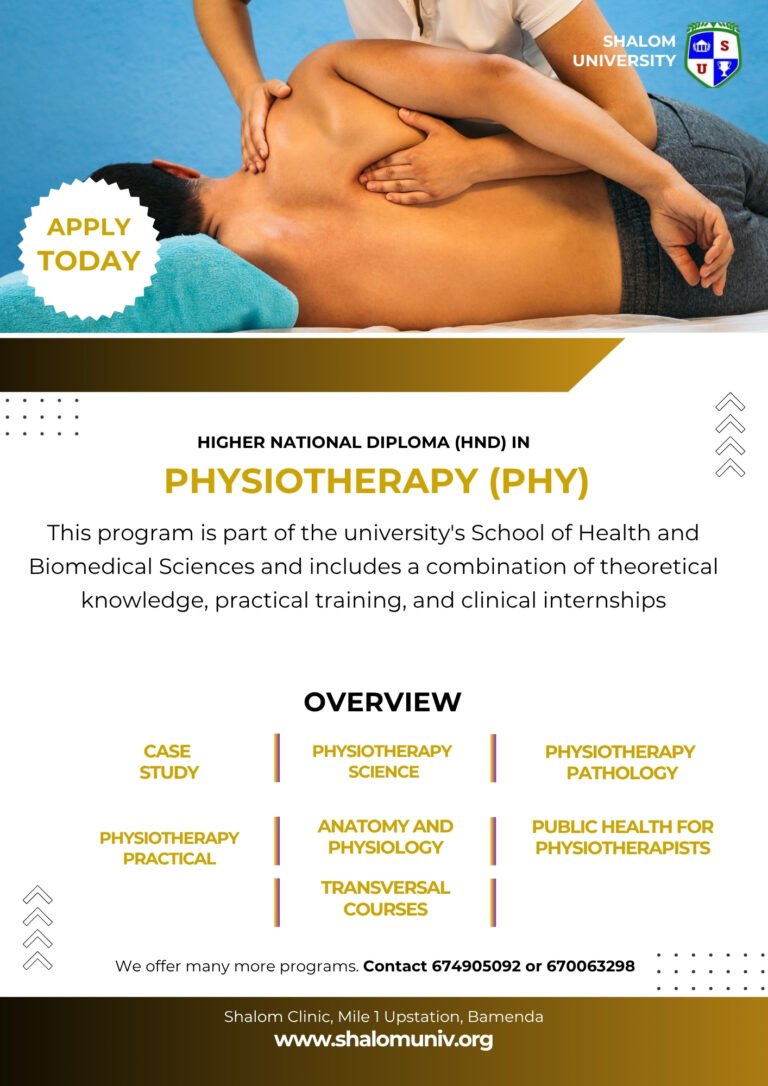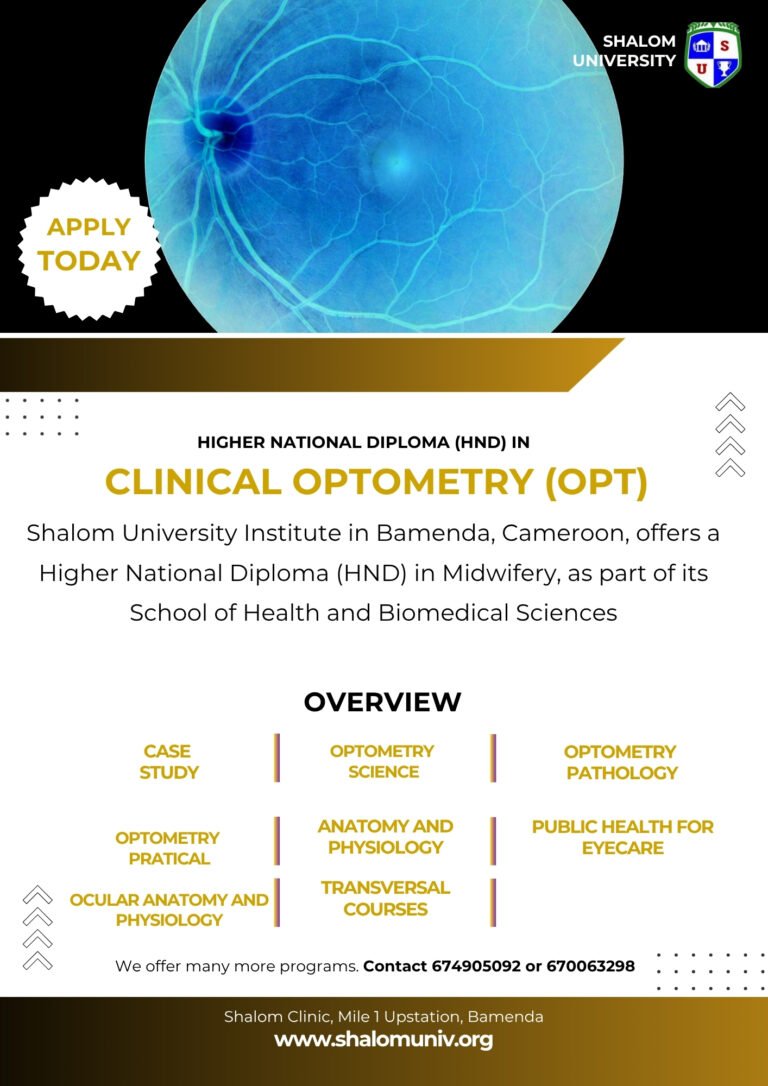The healthcare landscape in Cameroon is a dynamic and essential field, with a constant demand for skilled, compassionate, and well-trained nursing professionals. For aspiring nurses, the journey begins with choosing a program that combines robust theoretical knowledge with practical, hands-on experience, all within the context of the local community’s unique healthcare needs.
In the North West Region, Shalom University in Bamenda has firmly established itself as a leading institution for health sciences, offering an HND in Nursing that is both Ministry of Higher Education accredited and deeply rooted in real-world application. This program is not just a qualification; it is a pathway to a rewarding career, providing graduates with the expertise needed to make a tangible difference in the lives of Cameroonians.
Shalom University’s approach is defined by a commitment to inquiry-based learning, critical thinking, and a curriculum that reflects contemporary healthcare practices. The HND in Nursing is more than a list of courses; it is a holistic training experience designed to produce nurses who are confident, competent, and ready for the challenges of the profession. This is particularly relevant in the Cameroonian context, where nurses often serve as the frontline of healthcare, especially in rural and underserved communities.
The Blueprint of a Professional Nurse: Core Curriculum at Shalom University
At the heart of Shalom University’s HND in Nursing are four core papers that form the backbone of a student’s education. These modules are specifically designed to be comprehensive, ensuring that graduates are well-rounded professionals with expertise in diverse areas of patient care.
PAPER: NURSING SCIENCE
The Nursing Science paper lays the critical foundation for all future clinical practice. It is here that students delve into the biological and medical principles that underpin patient care. The curriculum covers a wide range of subjects, including:
- Anatomy and Physiology: Understanding the structure and function of the human body is paramount. In the Cameroonian context, this knowledge is vital for diagnosing and treating diseases prevalent in the region, from infectious diseases like malaria and typhoid to chronic conditions such as hypertension and diabetes.
- Pharmacology: Students learn about different medications, their effects, and safe administration. This is particularly crucial given the diversity of pharmaceuticals available and the need for careful dosage, especially in settings with limited resources.
- Microbiology and Pathology: A strong grasp of disease-causing organisms and the progression of diseases is essential for effective patient care and infection control, a key concern in all Cameroonian health facilities.
- Foundations of Nursing Care: This introduces students to the core principles and skills of nursing, including patient assessment, vital signs monitoring, hygiene, and safe patient handling.
This paper ensures that Shalom University graduates possess the deep scientific knowledge required to make informed clinical judgments and provide evidence-based care, preparing them for the rigors of a career in the Cameroonian healthcare system.
PAPER: NURSING PRACTICE
If Nursing Science is the “what,” Nursing Practice is the “how.” This is where students transform theoretical knowledge into hands-on competence. The Nursing Practice paper is heavily focused on the practical application of skills in a clinical setting. Shalom University’s location in Bamenda, with its own practicing hospital and strong ties to other regional health facilities, provides an ideal environment for this.
Key components of this paper include:
- Simulated Clinical Practice: Before entering actual hospital wards, students practice skills in modern, campus-based simulation suites. This safe environment allows them to master procedures like injections, catheterization, and wound dressing under the supervision of seasoned nurse educators.
- Clinical Placements: A core element of the program is the Supervised Industrial Work Experience Scheme (SIWES). Students are placed in a variety of healthcare settings, from urban hospitals to community clinics, where they work directly with patients under the guidance of experienced nurses. This exposure to diverse environments is invaluable for preparing them for the varied realities of nursing in Cameroon.
- Patient Management: Students learn to effectively manage patient care plans, prioritize interventions, and collaborate with multidisciplinary teams. This is a crucial skill for ensuring smooth, coordinated, and effective patient care.
The practical training at Shalom University is intensive and supervised, ensuring that graduates are not only knowledgeable but also clinically proficient and confident in their abilities.
PAPER: MOTHER AND CHILD HEALTH
In Cameroon, the health of mothers and children is a public health priority. The Mother and Child Health paper is a specialized module that equips nursing students with the knowledge and skills to provide expert care during this critical period. This course addresses key challenges specific to the Cameroonian context, such as managing high-risk pregnancies, addressing issues of malnutrition in children, and implementing effective immunization programs.
The curriculum for this paper includes:
- Obstetrics and Gynecology: Care of pregnant women, assistance during childbirth, and post-natal care. This includes identifying and managing complications common in the region.
- Pediatrics: Focusing on the unique needs of newborns, infants, and children. Students learn to assess pediatric patients, administer medications, and manage common childhood illnesses and conditions prevalent in Cameroon.
- Family Planning: Training in providing counseling and resources related to reproductive health and family planning, an essential service in many Cameroonian communities.
- Nutrition and Immunization: Education on proper nutrition for mothers and children and the importance of immunization campaigns, which are crucial for preventing childhood diseases.
This specialized training ensures Shalom University graduates are well-prepared to contribute to maternal and child health programs, a vital part of Cameroon’s healthcare strategy.
PAPER: CASE STUDY
The Case Study paper is a cornerstone of inquiry-based learning and critical thinking at Shalom University. It moves beyond rote memorization to train students in advanced problem-solving and evidence-based practice. This paper requires students to analyze real or simulated patient cases, presenting a comprehensive assessment, a nursing diagnosis, a care plan, and an evaluation of the outcomes.
In the Cameroonian context, this means:
- Holistic Assessment: Students must consider not only the clinical symptoms but also the social, economic, and cultural factors influencing a patient’s health. For example, a case study might involve a patient with a respiratory infection, requiring the student to consider factors like the patient’s living conditions, access to clean water, and nutritional status.
- Evidence-Based Practice: The case study forces students to justify their decisions using scientific evidence and best practices, encouraging a high standard of care.
- Patient-Centered Care: By focusing on individual patient cases, students learn to provide personalized care that respects the patient’s unique circumstances and cultural background. This is especially important in a country with diverse communities and traditional healthcare beliefs.
- Communication Skills: The case study defense is also an exercise in communication, requiring students to articulate their findings and rationale clearly to their instructors and peers.
This rigorous paper prepares Shalom University graduates to be analytical and effective healthcare providers, equipped to handle complex and nuanced patient situations.
A Foundation for a Future in Healthcare
Completing the HND in Nursing at Shalom University is the first step towards a fulfilling and impactful career. With the comprehensive training received, graduates are prepared to sit for the national HND examination organized by the Ministry of Higher Education and enter the workforce as qualified nurses. They can find opportunities in public hospitals, private clinics, community health centers, and non-governmental organizations across Cameroon. For those who wish to pursue higher education, the HND also serves as a gateway to top-up programs for a Bachelor’s degree in Nursing Science.
For anyone passionate about making a difference in the lives of others, Shalom University’s HND in Nursing program offers a robust and practical path. By focusing on core courses like Nursing Science, Nursing Practice, Mother and Child Health, and Case Study analysis, the institution produces well-rounded and competent professionals ready to serve the Cameroonian community with dedication and skill.




